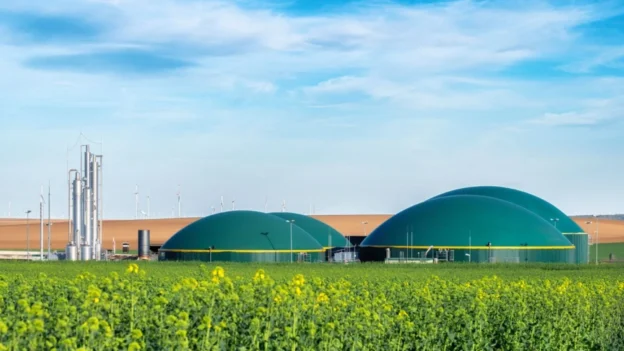The Cobirgy biogas plant, to be built in La Sentiú de Sió (Lleida), has already achieved the adhesion of more than 300 livestock farmers from the regions of La Noguera, Pla d’Urgell and Urgell. These will contribute annually about 480,000 tons of livestock waste to be transformed into biomethane. biomethanebiomethane, a renewable energy source that will also reduce greenhouse gas emissions.
With 80% of the waste coming from farms located within a radius of 15 kilometers, the project guarantees efficient logistics with low environmental impact.
According to technical studies, heavy traffic in the area will only increase by 1% with the start-up of the plant, which significantly limits the inconvenience to the local population.
Sealed and odor-free transport
Connect Bioenergy, the local project developer together with Copenhagen Infrastructure Partners (CIP), has provided for a completely closed transport system using sealed tanks, as well as sealed discharge facilities that prevent odor emissions. This is complemented by a closed treatment circuit and advanced deodorization technology to ensure minimum environmental impact.
The plant’s technical design integrates the highest standards in air treatment and emission control, aspects that have been decisive in obtaining the qualification of strategic project by the Catalan government.
Biogas plant capacity
With a projected capacity of 200 GWh per year, the biomethane generated will supply the consumption of some 23,000 households, positioning Cobirgy as one of the main bioenergy infrastructures in the northeastern peninsular. The project will avoid the emission of some 68,000 tons of CO₂ per year, actively contributing to European climate targets.
In addition to energy savings, the plant will help mitigate the problem of nitrate contamination in soils and aquifers, a growing concern in areas with high livestock density. Part of the by-products resulting from the process will be used as organic fertilizers, thus closing the waste cycle.
Cobirgy will generate some 40 direct jobs in the region and will enable participating farmers to efficiently and sustainably manage their waste.
For CIP, the plant is part of its expansion strategy in clean technologies in Spain, where it is already developing other initiatives such as wind farms and Power-to-X projects.
Source: Connect Bioenergy
Photo: shutterstock

